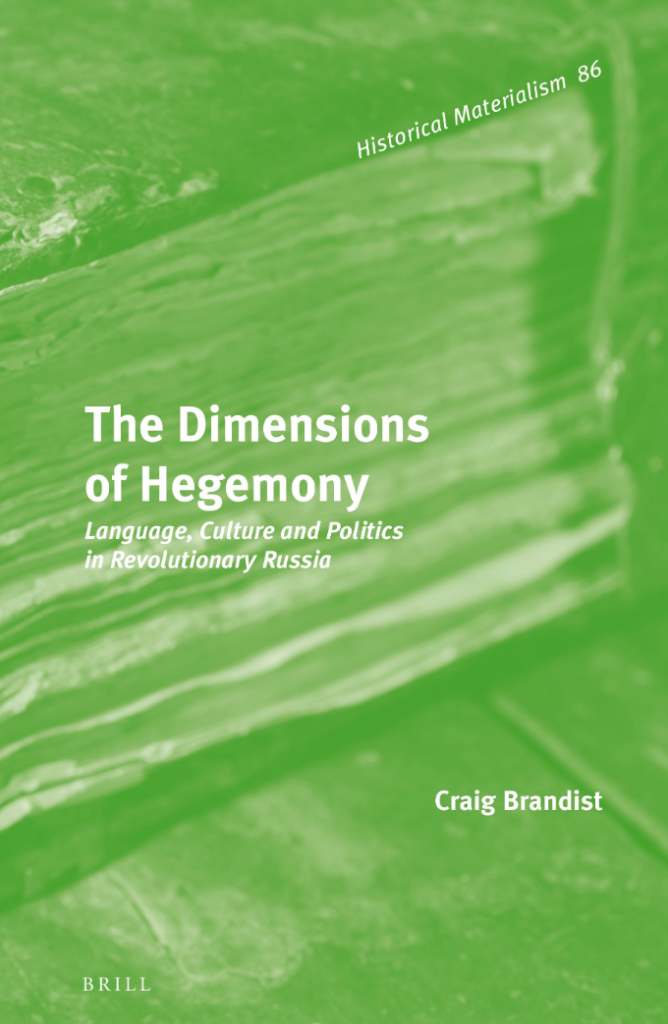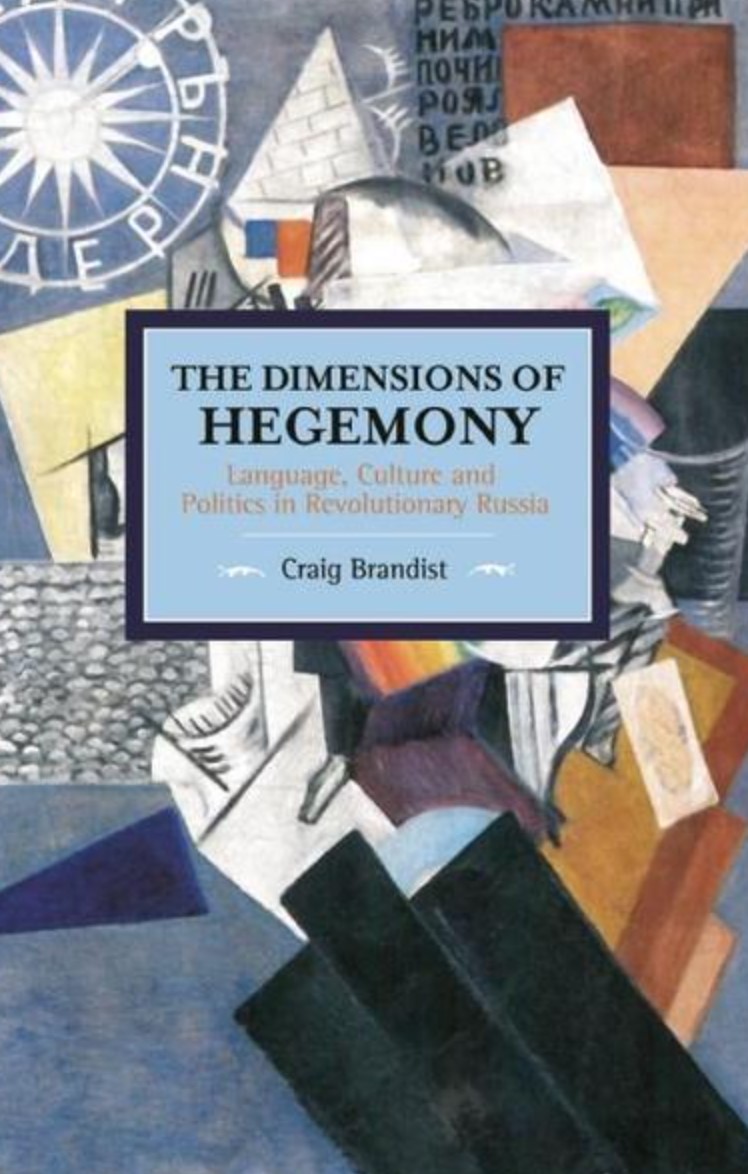Craig Brandist, University of Sheffield
Though generally associated with the Italian Marxist Antonio Gramsci, the idea of hegemony had a crucial history in revolutionary Russia where it was used to conceptualize the dynamics of political and cultural leadership. Drawing on extensive archival research, this study considers the cultural dimensions of hegemony, with particular focus on the role of language in political debates and in scholarship of the period. It is shown that considerations of the relations between the proletariat and peasantry, the cities to the countryside and the metropolitan centre to the colonies of the Russian Empire demanded an intense dialogue between practical politics and theoretical reflection, which led to critical perspectives now assumed to be the achievements of, for instance, sociolinguistics and post-colonial studies.
Biographical note
Craig Brandist is Professor of Cultural Theory and Intellectual History at the University of Sheffield, UK. His work has greatly extended Anglophone understandings of Soviet sociolinguistics, and includes major works on Bahktin, Vygotskii, and the Soviet critique of Eurocentrism.
Readership
Specialists, graduate and advanced undergraduate students interested in Marxism, the Russian Revolution and the rise of critical paradigms in the humanities and social sciences.
Table of contents
Preface
Acknowledgements
Introduction: the Multiple Dimensions of Hegemony
1. Hegemony in Russian Social Democracy Before 1917
2. Hegemony without Social Science: Traditional Intellectuals in Late-Imperial Russia.
3. Verbal Art and Revolution: the Living Word
4. Metamorphoses of Hegemony in the Period of the NEP
5. The New Paradigm in Linguistic Science
6. The Revolution in the West and East: Hegemony and the National Question
7. Hegemony: the Decline and Fall of a Paradigm
8. Ideology Critique, Positivism and Marxism: the Paradoxical Legacy of Nikolai Marr
9. Conclusion
Glossary of Names
References


